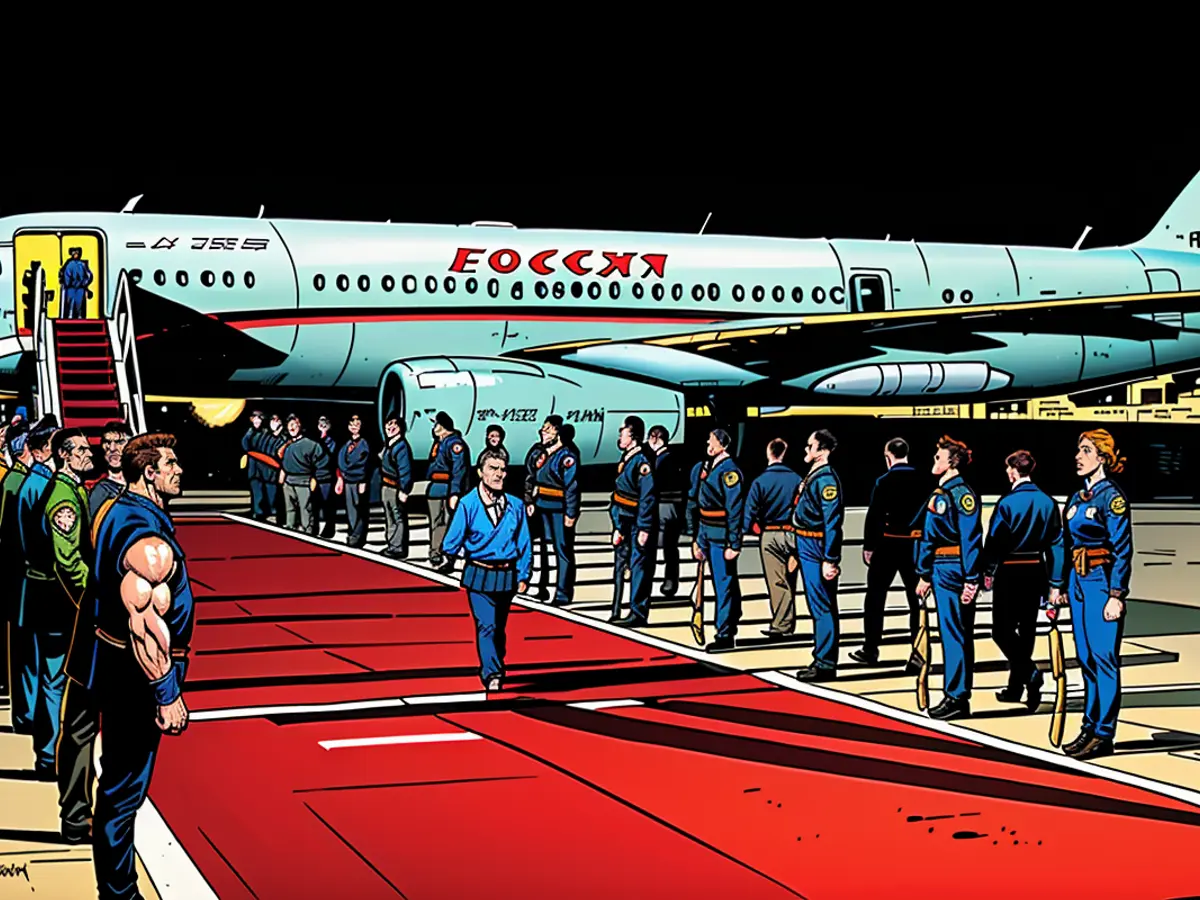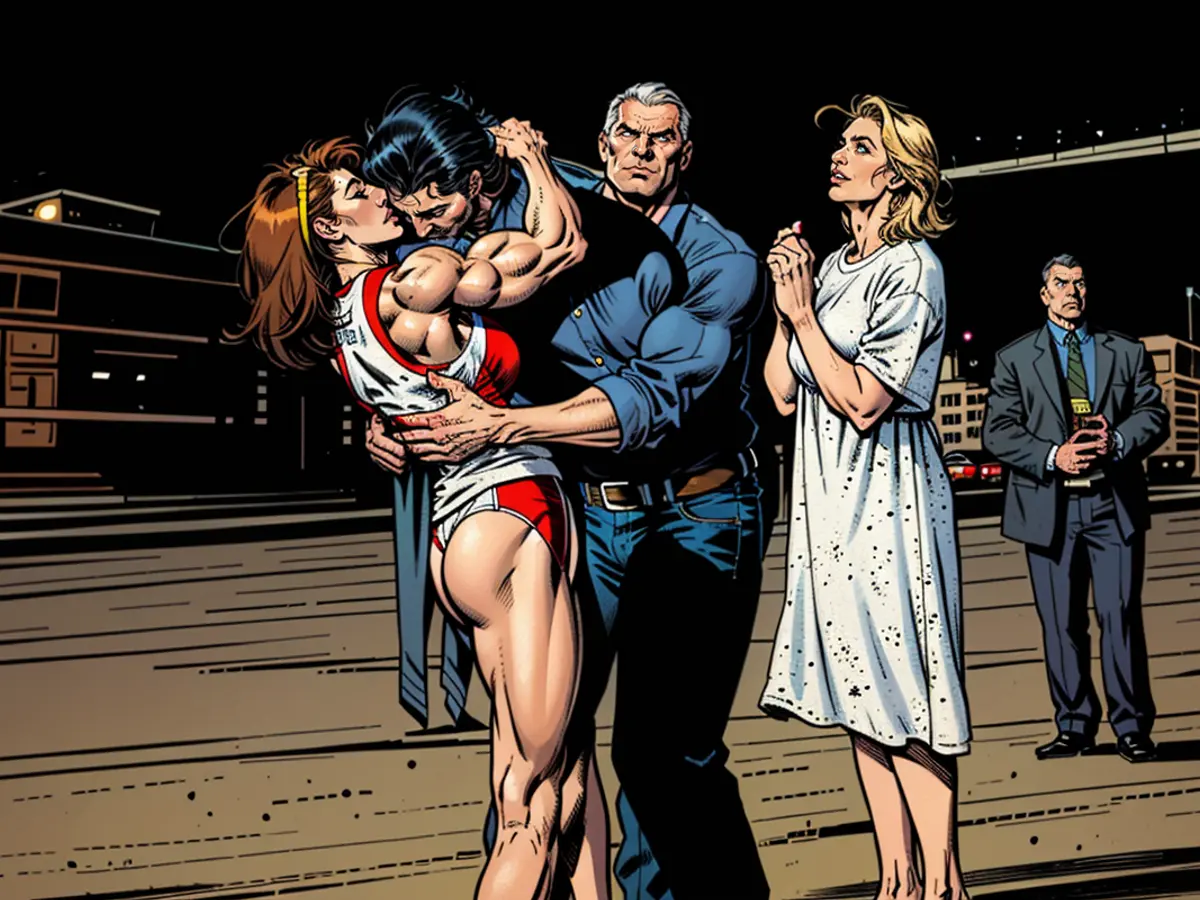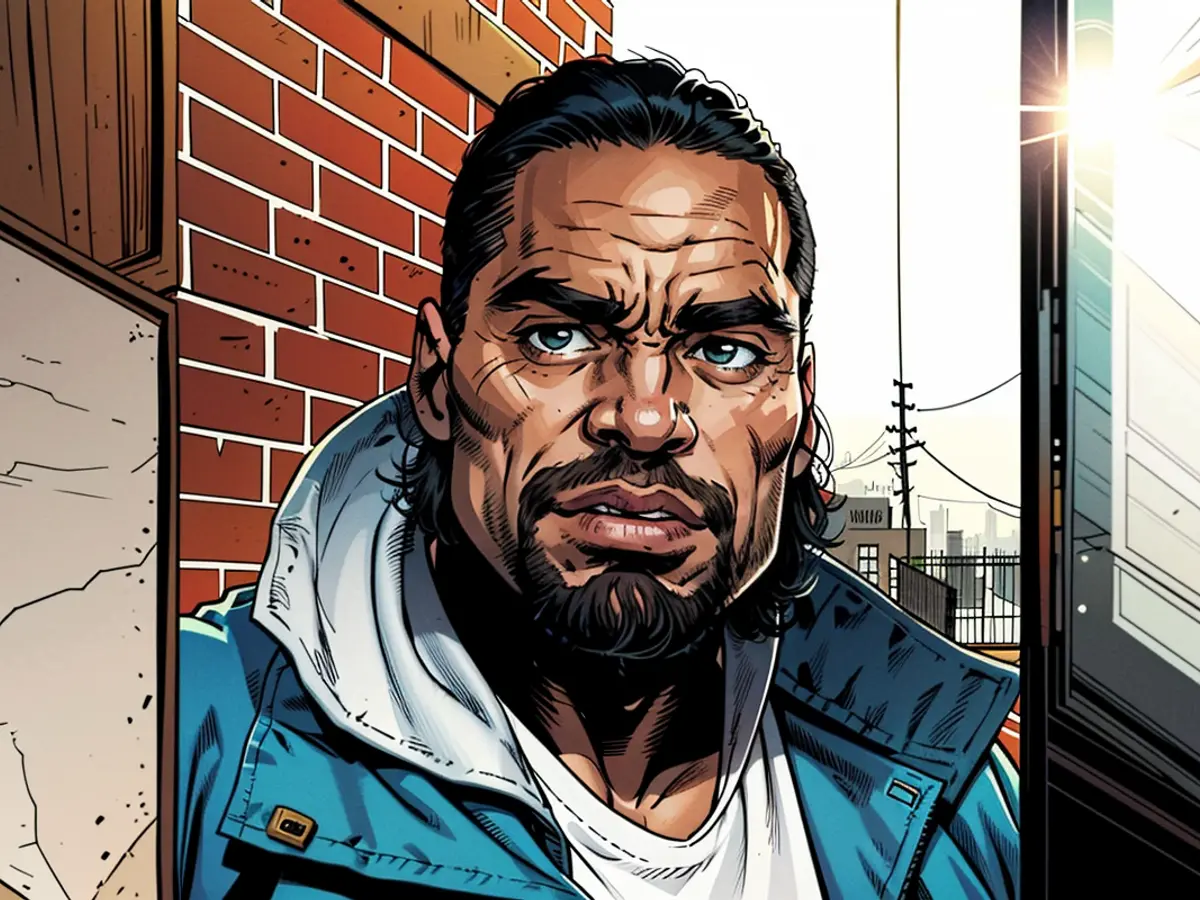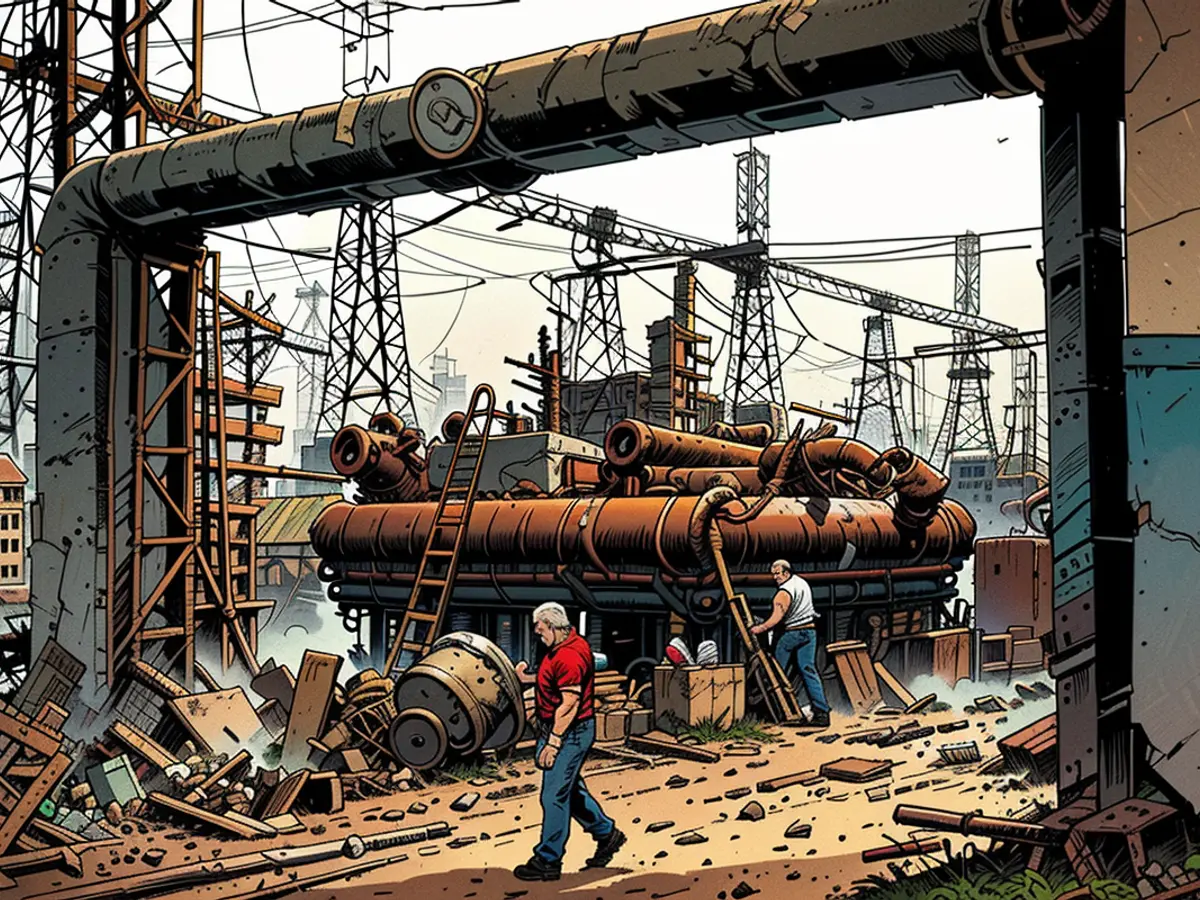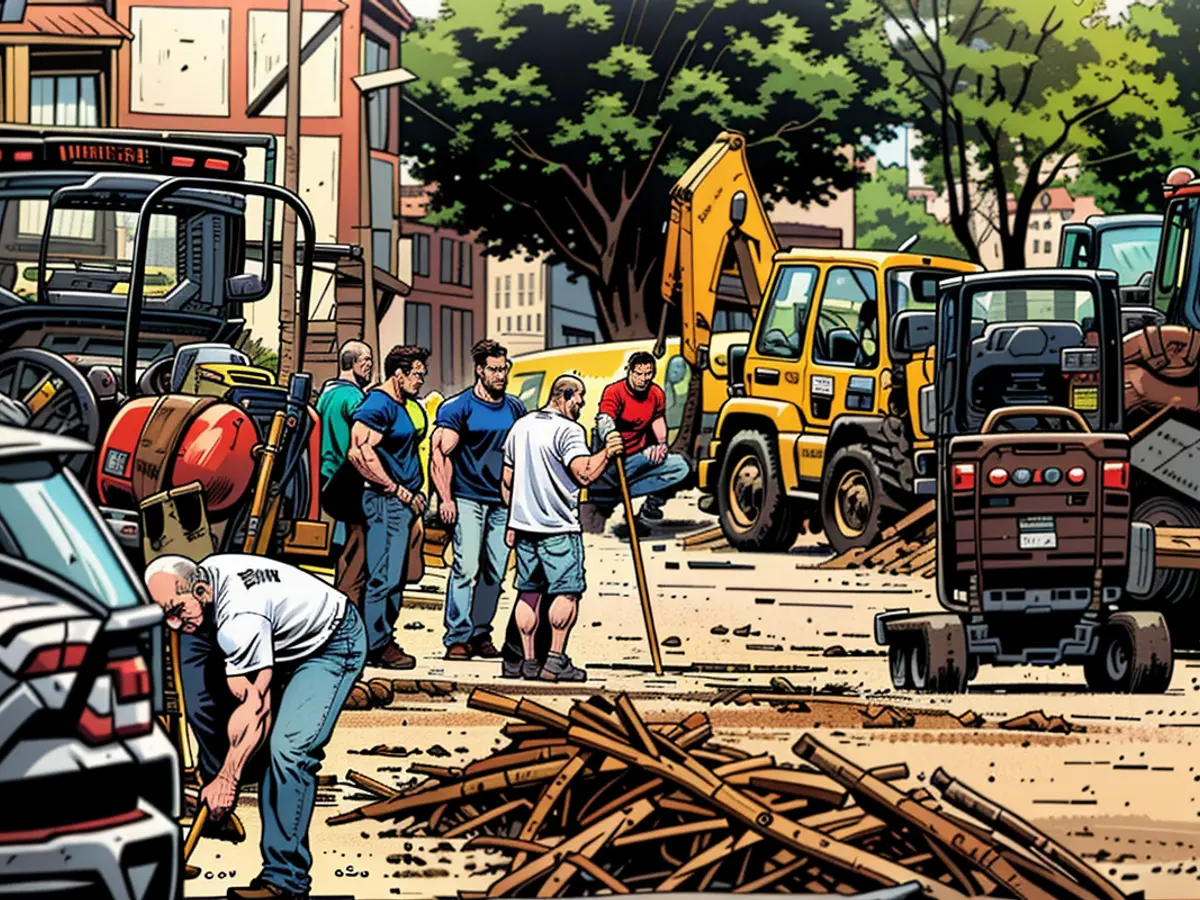- The United States and Russia remain on the front line after the exchange
Similar images are seen at airports in Cologne, Washington, and Moscow, but the signs are different: More than 20 prisoners, including five Germans, have been released after the largest prisoner exchange since the end of the Cold War. Chancellor Olaf Scholz welcomes Russian opposition figures, US President Joe Biden embraces journalist Evan Gershkovich, while Kremlin leader Vladimir Putin hugs "Zoo Murderer" Vadim Krasikov, whose status as an FSB agent has now been confirmed.
There is joy on all sides. For Biden and his Vice President Kamala Harris, the release of prominent prisoners is a significant achievement, coming just three months before the presidential election. But could it also mark the beginning of further negotiations between the West and Russia, potentially leading to a resolution in the Ukraine conflict?
A victory for Biden and Harris, anger from Trump
While Biden's administration has already secured the release of several Americans from Russia since taking office in 2021, despite high tensions due to the Ukraine war, the timing of this historic exchange carries extra weight for the Democrats in the midst of the US election campaign, which was thrown into disarray by Biden's withdrawal from the race.
The deal will not only be part of Biden's political legacy but also allows Vice President Harris, who is set to run against Republican Donald Trump, to present herself as a strategic leader who played an active role in the negotiations. For instance, it was Harris who held a personal meeting with Scholz on the sidelines of the Munich Security Conference in February, after much back-and-forth between Washington and Berlin.
The reaction from Trump, who is said to have close ties to Putin, showed that this is a significant victory for the Democrats. The former president commented on the deal in a clearly irritated manner on his Truth Social platform and, without evidence, suggested in a TV interview that money had exchanged hands.
While Putin might not have wanted to risk the progress made through months of secret talks for the sake of Trump potentially returning to power, the Russian leader is likely to have little interest in jeopardizing these gains. Trump is known for his unpredictability and has previously stated that he would offer nothing in exchange for the release of detained Americans.
No concessions on the Ukraine war
The White House quickly dampened hopes that the deal might lead to a shift in the Ukraine situation. Biden's National Security Advisor Jake Sullivan made it clear to journalists that the prisoner exchange does not directly influence the situation in Ukraine, emphasizing the practical nature of the deal while diplomatic efforts regarding the Ukraine war are much more complex.
Sullivan noted that there were no direct talks with Putin during the negotiations, with only lower-level contacts taking place. Biden and Putin have not spoken since February 2022, just before the Russian invasion of Ukraine. According to the Kremlin, the intelligence services of both countries led the negotiations for the prisoner exchange, while Sullivan referred to "sensitive channels."
Expert: Many factors influence the course of the war
Russian political expert Tatjana Stanowaia sees hope in many that the exchange between the West and Moscow will bring negotiations in the Ukraine conflict closer. "But there's little reason for this," she said. There are many other factors affecting the course of the Russian-Ukrainian war. "The outcome of the U.S. elections, internal political changes in Ukraine, the situation on the front lines, and the military resources of both sides have much more to do with who, how, and when will talk about peace in Ukraine," she noted in an analysis for the U.S. think tank Carnegie.
"The current exchange looks more like the end of a certain phase of confrontation, while the contours of the next phase are not yet clearly visible," she said. In her view, the death of Kremlin critic Alexei Navalny in a Siberian prison camp in February likely increased pressure to push through the long-planned exchange.
"For Berlin, the possibility of securing political prisoners became an important motive that helped overcome legal and political hurdles - for the extradition of Krasikov," she said, referring to the "Tiergarten murderer" who was convicted of killing a Georgian in Berlin and sentenced to life imprisonment.
Political scientist: Putin not open to negotiations in Ukraine war
Political scientist Fyodor Lukyanov also warns against reading too much into the deal and expecting a thaw between Moscow and the West. "That's not how it is. The exchange is a feature of an established and structured confrontation, like that during the Cold War," wrote the editor-in-chief of the magazine "Russia in Global Politics" on Telegram. It's good to have a channel for negotiations, but it says nothing about the future.
German political scientist David Sirakov said that despite serious tensions, there have been constant talks between Moscow and Washington. "The question is whether agreements and ultimately solutions can be reached. Here, it seems to have worked, perhaps precisely because President Vladimir Putin has shown genuine willingness to talk." This is at least currently in stark contrast to Putin's stance in his war against Ukraine.
The prisoner exchange, involving more than 20 individuals including German nationals, has led to a sense of relief and celebration. This significant event, which is the largest since the end of the Cold War, could potentially pave the way for further negotiations between the West and Russia, potentially resolving the ongoing Ukraine conflict.
Following the exchange, former US President Donald Trump expressed his discontent with the deal on his Truth Social platform, suggesting without evidence that money was involved. Despite Trump's remarks, Putin seems unlikely to jeopardize these gains, given Trump's unpredictability and past statements about not making concessions for detained Americans.
